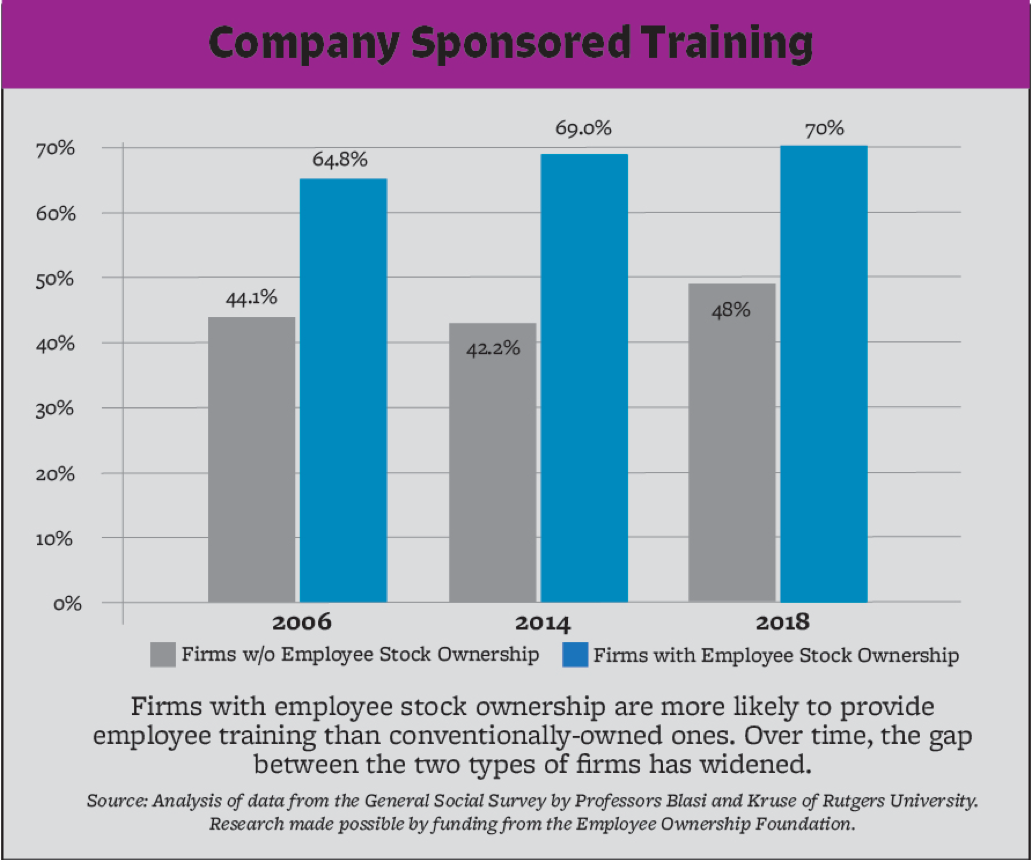Employee Training
While gaining an ownership stake in one’s place of employment is an obvious benefit, research is showing that employee owned companies also invest in their employees through training at a much higher rate than other businesses. Workers, especially the rising millennial generation, consistently cite job training and skills development as a key driver for job satisfaction and longevity in a position.
Key Facts:
- Employee owned companies provide training at a rate roughly 1.3 times that of conventionally owned firms.
- Employee training can contribute to employee development, recruitment, and retention.
Providing training to employees helps keep their skills sharp and can lead to improved productivity. It also shows a commitment to employee growth and development that may pay additional dividends, including potentially having a positive effect on employee retention.
Companies with employee stock ownership consistently outperform their conventionally-owned counterparts at offering employee training. In fact, companies with employee stock ownership are 1.3 times more likely to offer such training, according to research funded by the Employee Ownership Foundation. (See the graph below.)

Investing in training can be an essential way to develop employees and ensure they have the skills to advance and fill more prominent, vital roles in an organization. Thus, a consistent investment in training can be an important element in an organization’s succession management strategy.
Further, training may be essential for attracting and retaining certain employee groups—most notably millennials. According to research cited in this article [https://www.shiftelearning.com/blog/statistics-value-of-employee-training-and-development], 87 percent of millennials say that access to professional development or career growth is a very important factor in helping them decide whether to stay with a company.